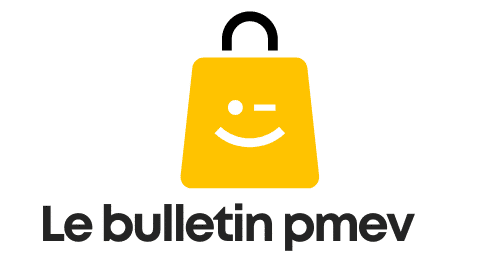What Role Can Pharmacist-led Health Education Play in Managing Hypertension?

As a population, you are becoming increasingly aware of the importance of maintaining good health. Among the myriad health issues, hypertension or high blood pressure is a concerning one. It is a disease that requires long-term management and care for patients. A key player in the field of healthcare who can proactively contribute to this management is none other than your friendly neighbourhood pharmacist. This article aims to shed light on the role pharmacist-led health education can play in managing hypertension.
Pharmacist: An Underestimated Ally in Health Care
You might primarily associate pharmacists with the dispensing of medication. However, they have a much broader role in health care. Pharmacists are often the most accessible health care professionals, particularly in community settings. They have been relegated to the sidelines for too long, but they can be significant allies in disease management.
Sujet a lire : Can Regular Consumption of Spicy Foods Increase Metabolism and Aid Weight Loss?
Pharmacists work at the crossroads of the healthcare industry. With their vast knowledge of medications, they can assist patients in understanding their disease, the importance of medication adherence, and lifestyle modifications that can aid in managing the disease effectively.
A study published in Pharmacy journal, illustrated the significant impact that pharmacists can have on hypertension management. The pharmacist-led interventions brought about a noticeable decrease in blood pressure levels of patients. This highlights the potential role that pharmacists can play in health care.
A lire aussi : Does Guided Imagery Provide Effective Pain Relief in Palliative Care Patients?
The Role of Pharmacists in Hypertension Management
Pharmacists can provide a vast array of services in the management of hypertension, extending beyond mere medication dispensation. Here, we’ll look at how a pharmacist-led health education can be integral in managing hypertension.
Firstly, medication management is a critical area where pharmacists can contribute. Since hypertension requires long-term medication use, understanding the medication is crucial. A pharmacist can educate patients about their medication, its side effects, interactions with other drugs, and the importance of adherence to the prescribed medication regimen.
Next, pharmacists can offer lifestyle counselling. Modifying lifestyle habits such as diet and physical activity can significantly influence blood pressure levels. As part of the healthcare team, pharmacists can provide counselling on such lifestyle changes, in conjunction with the prescribed medication.
Finally, pharmacists can facilitate regular blood pressure monitoring. Regular monitoring is vital to assess the effectiveness of medication and lifestyle changes.
Pharmacist-led Health Education: The Need of the Hour
Pharmacist-led health education can have a substantial impact on hypertension management. Health education can empower patients to take control of their disease. This proactive approach is what can make a difference in the healthcare landscape.
Pharmacists, with their medication expertise, are in a unique position to provide this health education. They can educate patients about hypertension, the risk factors, and the importance of regular blood pressure monitoring. They can also provide patients with practical tips to manage their disease effectively, like adhering to medication schedules and making lifestyle modifications.
Pharmacist-led Health Education: Success Stories
Considerable evidence is already present regarding the effectiveness of pharmacist-led health education. For instance, a study published in Research in Social and Administrative Pharmacy highlighted the significant role pharmacists played in improving medication adherence and blood pressure control among hypertension patients.
In another study conducted in community pharmacies, pharmacists provided health education to patients using a structured program. The results were promising, with patients showing improved blood pressure control and increased knowledge about their disease and its management.
This evidence underscores the potential benefits of involving pharmacists in hypertension management. With proper training and support, they can provide valuable health education to hypertension patients.
Making Pharmacist-led Health Education a Reality
While the benefits of pharmacist-led health education are clear, implementing it in practice may present challenges. This would require a systemic change in the healthcare sector, with increased recognition of the role of pharmacists in disease management. Policymakers, healthcare providers, and patients all need to acknowledge and support this new role for pharmacists.
Training programs for pharmacists can equip them with the necessary skills to provide effective health education. Healthcare facilities must also provide a supportive environment, where pharmacists can deliver these services without barriers.
In conclusion, the time has come to recognize the potential role of pharmacists in health education and hypertension management. With their medication expertise and access to patients, pharmacists can make a significant contribution to managing this widespread disease. Let us all play our part in making pharmacist-led health education a reality.
Building a Framework: The Practical Aspects of Pharmacist-led Health Education
To enhance the role of pharmacists in hypertension management, a practical framework needs to be established. This framework should be based on real-world experiences and evidence gathered from numerous studies available on platforms like Google Scholar, PubMed, and other research platforms.
An integral part of this framework is training. Pharmacists should be equipped with the necessary skills to provide effective health education. Such training programs should cover various aspects of hypertension management, such as medication adherence, lifestyle modifications, and regular blood pressure monitoring.
Training programs should also focus on enhancing the communication skills of pharmacists. As pharmacists are at the forefront of healthcare, effective communication with patients is vital. It is essential for pharmacists to explain complex medical information in a simplified and understandable manner.
To ensure the efficient functioning of this framework, a supportive environment in community pharmacies is critical. Opportunities should be provided for pharmacists to engage with patients beyond the traditional role of dispensing medications. This may include setting up health counseling sessions or providing additional services such as blood pressure monitoring.
Implementing this framework may present challenges. It requires substantial changes in the healthcare system and increased recognition of the role of pharmacists in disease management. It also requires the commitment of healthcare policymakers, providers, and patients to support this new role.
Concluding Thoughts: The Future of Pharmacist-led Health Education
The role of pharmacists in managing hypertension is a relatively unexplored yet promising area. By stepping beyond the traditional role of dispensing medication, pharmacists can have a significant impact on public health. They can play a critical role in closing the health equity gap and improving cardiovascular disease outcomes.
There is enough evidence available, from meta-analysis studies and individual research papers, that supports the benefits of pharmacist-led interventions in hypertension management. The key now is to translate this evidence into practice. By implementing pharmacist-led health education, we can make significant strides in the management of hypertension.
The journey towards making pharmacist-led health education a reality is not without challenges. But with the combined efforts of all stakeholders, including policymakers, healthcare providers, and patients, these obstacles can be overcome.
In conclusion, pharmacists, with their medication expertise and proximity to patients, can play a vital role in hypertension management. By leveraging their unique position, pharmacists can contribute significantly to public health and bring about a remarkable improvement in hypertension management. As we move forward, let’s all strive to make pharmacist-led health education a reality. It’s time for a paradigm shift in hypertension management, and it starts with you.
